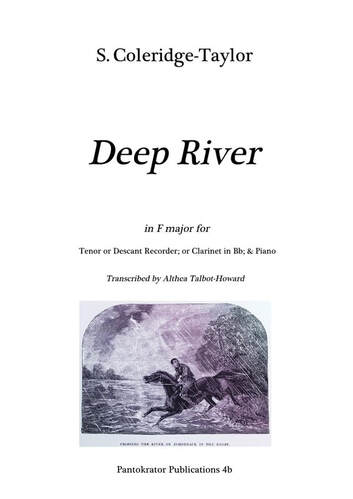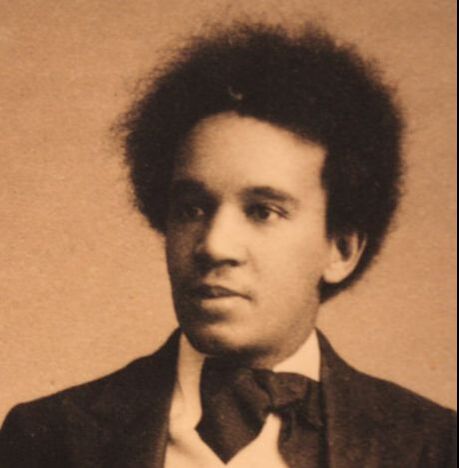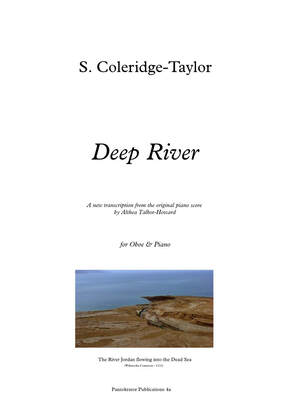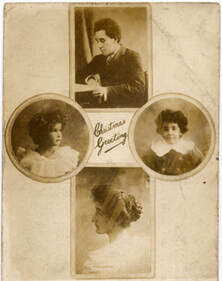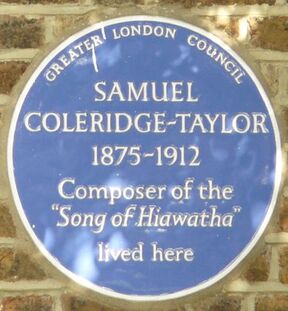Crossing the River at Night (New York Public Library)
Samuel Coleridge-Taylor (1875-1912)
Deep River
for Tenor or Soprano Recorder & Piano
A new woodwind transcription in F major,
direct from the original Opus 59/10 solo piano score by Althea Talbot-Howard
Leading Recorder player
Sarah Jeffery
performs Deep River on her
Moeck Ehlert Modern Tenor,
before placing the work into its historical context.
Click on the image, to purchase the score!
Deep River
for Tenor or Soprano Recorder & Piano
A new woodwind transcription in F major,
direct from the original Opus 59/10 solo piano score by Althea Talbot-Howard
Leading Recorder player
Sarah Jeffery
performs Deep River on her
Moeck Ehlert Modern Tenor,
before placing the work into its historical context.
Click on the image, to purchase the score!
Free Sampled Piano Accompaniment MP3!
Click through to The New Chevalier Sonata for Alto Recorder & Piano
by Afro-French Classical composer Joseph Bologne, Chevalier de Saint-Georges & Althea Talbot-Howard
by Afro-French Classical composer Joseph Bologne, Chevalier de Saint-Georges & Althea Talbot-Howard
Samuel Coleridge-Taylor (1875-1912)
arr. Althea Talbot-Howard
Deep River
for Melody Instrument & Piano, in E major (original key)
arr. Althea Talbot-Howard
Deep River
for Melody Instrument & Piano, in E major (original key)
Hassan Anderson & David Korevaar play Deep River.
This transcription of Deep River (Opus 59/10) is a new arrangement from the original piano score, and differs from the 1904 Violin & Piano arrangement by the American virtuosa, Maud Powell. Having performed her transcription twice on the Oboe, I found it insufficiently idiomatic to be comfortable for a woodwind player. In 2020, I decided to create a specialist woodwind arrangement which was mindful of breathing needs - using material from the centre of the piece, that Powell had rejected. The long central section was, in fact, cut by both of us. Whilst she chose fiery music that was violinistic and idiomatic in its use of chords, I chose the slower and more peaceful material that was better suited to long, single-line woodwind melodies.
|
Biography of Samuel Coleridge-Taylor
Samuel Coleridge-Taylor was a bi-racial composer of English and Sierra Leonean descent. Born in south London in 1875, he was raised by his English family: a musical family which taught him so well that he gained a place - in the 1890s - at the Royal College of Music in London. His areas of study were Violin and Composition.
Coleridge-Taylor's principal Composition teacher was Charles Villiers Stanford (1852-1924). After leaving the RCM, Coleridge-Taylor gained work as a professional musician in his natal Croydon area, as a teacher and conductor. In 1899 he married Miss Jessie Walmisley, whom he had met whilst studying at the RCM, and they had two children: Hiawatha and Avril Coleridge-Taylor. Both children pursued musical careers in their adulthoods. |
|
Coleridge-Taylor found it difficult to earn sufficient income as a composer, but persevered until his early death at the age of thirty-seven. He experienced a number of successes en route, including three tours of the United States in the 1900s, and patronage by Sir Edward Elgar - also an alum of the RCM. His cantata Hiawatha's Wedding Feast was a runaway success - and it was his failure to make sufficient money from score sales that lead to the formation of the PRS - the Performing Right Society.
His Op. 59 set of piano melodies from the African diaspora caught the attention of American violin virtuosa Maud Powell, and she created her own, renowned arrangement of Deep River for Violin & Piano in 1904, as mentioned above. It was during these visits to the USA that Samuel Coleridge-Taylor was received at the White House by President Theodore Roosevelt. The composer died in England of pneumonia, in 1912. |

